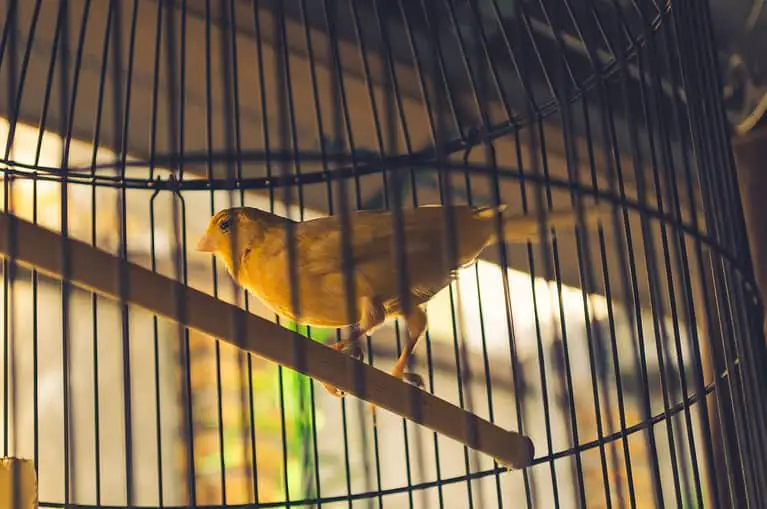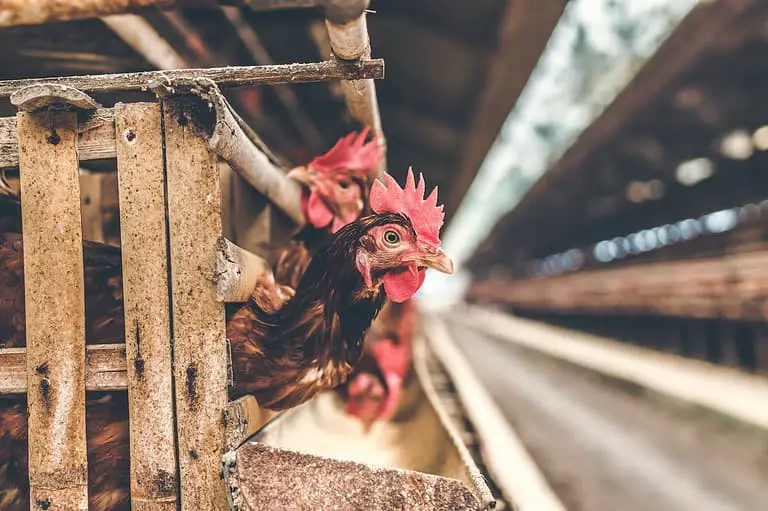The Importance of Poultry Farm Insurance: Protecting Your Chicken Farm and Managing Business Risks
Understanding the Risks Faced by Poultry Farmers
Poultry Farm Insurance. Poultry farming is a complex and challenging industry that requires a deep understanding of the various risks faced by farmers. From broiler chicken farming to layer chicken farming, every aspect of poultry production comes with its own set of challenges. Factors such as poultry nutrition, disease control, biosecurity principles, and housing design and management all play a crucial role in the success or failure of a poultry farm.
One of the major risks in poultry farming is the outbreak of diseases. Viral infections, bacterial infections, and parasitic infestations can quickly spread within a flock and result in significant economic losses. That’s why implementing strict biosecurity measures, such as vaccination programs and quarantine protocols, is essential to prevent disease outbreaks. Additionally, farmers need to carefully monitor the nutrition and health of their birds to prevent deficiencies and illnesses that can compromise their productivity.
Another significant risk in poultry farming is market volatility. The poultry market is subject to fluctuations in demand, feed prices, and processing and marketing costs. As a result, poultry farmers need to stay updated with market trends, maintain good relationships with suppliers and buyers, and have contingency plans in place to adapt to changing market conditions. Failure to do so can negatively impact the profitability and sustainability of the business.
Understanding and managing these risks is crucial for the long-term success of poultry farmers. By implementing effective strategies for disease control, nutrition management, and market analysis, farmers can mitigate potential losses and safeguard their livelihood. However, it is equally important for them to consider the role of insurance in protecting their chicken farms, which will be discussed in the next section.
Protecting Your Chicken Farm: The Role of Insurance

Insurance plays a crucial role in protecting your chicken farm from potential risks and uncertainties. As a poultry farmer, you are well aware of the challenges that come along with poultry farming, whether it’s broiler chicken or layer chicken farming. From the early stages of establishing a poultry hatchery to managing the flock, ensuring the right feed, and processing and marketing the final products, there are numerous factors that can impact the success of your business.
One major aspect that needs to be considered is the financial aspect of poultry farming. From the costs involved in setting up and maintaining the farm to the revenues generated from the sale of eggs, chicken breeds, or processed poultry products, profitability is always a key concern. Without the right precautions in place, a single unforeseen event can lead to significant financial losses and potentially jeopardize your livelihood.
This is where poultry farm insurance steps in, providing a safety net against various risks and offering financial protection to mitigate these losses. Whether it’s biosecurity measures, disease control, vaccination programs, housing design, or waste management, insurance provides coverage to safeguard your investment and ensure the continuity of your poultry farming operations.
In the next section, we will delve deeper into the types of coverage available for poultry farms and how they can contribute to the long-term success and sustainability of your business.
- Poultry farm insurance provides financial protection against potential risks and uncertainties in the poultry farming industry.
- The challenges of poultry farming, such as managing the flock, ensuring proper feed, and processing and marketing products, can impact the success of your business.
- The financial aspect of poultry farming is crucial, from setting up and maintaining the farm to generating revenue through sales.
- Without precautions in place, a single unforeseen event can lead to significant financial losses that may jeopardize your livelihood.
- Poultry farm insurance offers coverage for biosecurity measures, disease control, vaccination programs, housing design, and waste management.
- Insurance acts as a safety net by providing financial protection to mitigate losses and ensure the continuity of your operations.
The Benefits of Poultry Farm Insurance in Mitigating Business Risks
Poultry farmers face a multitude of risks when running their businesses, from disease outbreaks to fluctuations in market demand. These risks can significantly impact the profitability and sustainability of the poultry industry as a whole. However, one effective measure to mitigate these risks is by obtaining poultry farm insurance.
Poultry farm insurance provides a safety net for farmers, ensuring that they are protected financially in the event of unforeseen circumstances. Whether it’s a sudden outbreak of a highly contagious disease or a natural disaster causing extensive damage to infrastructure, having insurance coverage can alleviate the financial burden and allow farmers to focus on rebuilding and maintaining their operations. In addition, insurance can also provide coverage for loss of income due to business interruptions, ensuring that farmers can continue meeting their financial obligations even during challenging times.
Furthermore, poultry farm insurance offers peace of mind to farmers, as they know that their hard work and investments are safeguarded. With the unpredictable nature of the poultry industry, having insurance coverage can provide a sense of security, allowing farmers to take calculated risks and make informed decisions without worrying about potential financial losses. This peace of mind enables farmers to focus on their core operations, such as flock management, feed optimization, and marketing strategies, which are crucial for the overall success and profitability of their poultry businesses.
In conclusion, poultry farm insurance plays a vital role in mitigating business risks for poultry farmers. By providing financial protection and peace of mind, insurance coverage allows farmers to navigate the uncertainties of the poultry industry more confidently. With proper insurance in place, farmers can focus on their core operations, contribute to the growth of the poultry industry, and sustain their livelihoods in the long run.
Assessing the Types of Coverage Available for Poultry Farms
When it comes to poultry farming, having the right insurance coverage is crucial for protecting your business from unforeseen risks. There are several types of coverage available specifically tailored for poultry farms, each addressing different aspects of the industry.
One of the most common types of coverage for poultry farms is property insurance. This insurance protects your farm against damage or loss to buildings, equipment, and other physical assets. It provides financial compensation for repairs or replacements in the event of fire, theft, vandalism, or natural disasters. Property insurance is essential for safeguarding your valuable investments in the poultry industry, such as the hatchery, feed storage facilities, and other infrastructure.
Another important type of coverage for poultry farms is liability insurance. This insurance protects you from potential legal claims and lawsuits that may arise from accidents or injuries on your farm. It covers medical expenses, legal fees, and settlements, providing you with financial security in case of unfortunate incidents. Liability insurance is particularly important in poultry farming due to the presence of potential hazards, such as biosecurity risks and employee accidents.
In addition to property and liability insurance, there are additional coverages available for specific aspects of poultry farming, such as livestock insurance, poultry mortality insurance, and business interruption insurance. It is crucial for poultry farmers to assess their individual needs and risks in order to determine the types of coverage that will best protect their livelihood.
Evaluating the Potential Financial Losses Without Insurance
Without proper insurance coverage, poultry farmers face the potential risk of significant financial losses. Running a poultry farm involves various costs, including feed, housing, labor, and veterinary care. Additionally, there are risks associated with disease outbreaks, natural disasters, and market fluctuations that can impact the profitability of the business.
One major financial risk without insurance is the potential loss of the entire flock due to disease. Poultry farms are vulnerable to various diseases that can quickly spread among the birds, leading to high mortalities and a halt in production. Without insurance, the cost of replacing the flock and implementing biosecurity measures can be overwhelming for the farmer. Moreover, in the absence of insurance coverage, farmers may find it difficult to recover financially from unforeseen events such as a fire or flood that could destroy their infrastructure, equipment, and livestock.
Another aspect to consider is the impact of market fluctuations on poultry farms. Prices for poultry products can fluctuate due to factors such as supply and demand dynamics, changing consumer preferences, and trade policies. These fluctuations can significantly affect the profitability of the business, making it crucial for poultry farmers to have insurance coverage that protects against potential losses in revenue. Without insurance, farmers may find themselves struggling to cover their costs and maintain a stable income stream.
In conclusion, evaluating the potential financial losses without insurance highlights the importance of having comprehensive coverage for poultry farms. With the multitude of risks faced by poultry farmers, insurance provides a safety net that can mitigate financial hardships and safeguard their livelihood.
How Poultry Farm Insurance Can Safeguard Your Livelihood
Poultry farming is a lucrative yet challenging business. Whether you are involved in broiler chicken farming, layer chicken farming, or poultry hatchery operations, there are numerous risks that can threaten your livelihood. From disease outbreaks and natural disasters to market fluctuations and unforeseen financial losses, the potential risks faced by poultry farmers are vast and varied.
This is where poultry farm insurance comes into play. By safeguarding your poultry farm, you can mitigate the potential risks and protect your livelihood. Poultry farm insurance provides coverage for a range of situations, including property damage, liability claims, equipment breakdowns, and even loss of income due to farm interruption. By investing in the right insurance policy tailored to your specific needs, you can have peace of mind knowing that your business is protected against unforeseen circumstances that could otherwise have devastating consequences.
One critical aspect of poultry farm insurance is the inclusion of biosecurity measures. Biosecurity plays a crucial role in maintaining the health and wellbeing of your flock. It involves implementing various protocols, such as disease control, vaccination programs, and biosecurity principles to prevent the spread of diseases and minimize the risk of outbreaks. A comprehensive poultry farm insurance policy should provide coverage for these biosecurity measures, ensuring that you have the financial support needed to implement effective disease control strategies and protect the welfare of your birds.
In conclusion, poultry farm insurance is an essential tool for safeguarding your livelihood in the poultry industry. It provides coverage for a wide range of risks, including property damage, liability claims, equipment breakdowns, and loss of income. Additionally, a robust poultry farm insurance policy should also encompass biosecurity measures, allowing you to implement effective disease control strategies and protect the health and wellbeing of your flock. By investing in the right insurance coverage, poultry farmers can mitigate potential financial losses and ensure the longevity and profitability of their businesses.
What are some common risks faced by poultry farmers?
Some common risks faced by poultry farmers include disease outbreaks, natural disasters, equipment breakdowns, and liability issues.
How can poultry farm insurance protect my chicken farm?
Poultry farm insurance provides coverage for various risks associated with running a chicken farm. It can protect against financial losses due to property damage, equipment breakdowns, liability claims, and loss of income.
What are the benefits of poultry farm insurance in mitigating business risks?
Poultry farm insurance offers several benefits. It provides financial protection against unforeseen events, reduces the impact of financial losses, helps maintain business continuity, and provides peace of mind to poultry farmers.
What types of coverage are available for poultry farms?
Poultry farm insurance typically includes coverage for property damage, equipment breakdowns, liability claims, loss of income, and mortality insurance for the birds. Additional coverage options may also be available depending on the insurance provider.
How can I assess the potential financial losses without insurance for my poultry farm?
Without insurance, potential financial losses for a poultry farm can be significant. This may include costs associated with property damage repair, replacing equipment, legal expenses from liability claims, and loss of income due to business interruption.
How does poultry farm insurance safeguard my livelihood?
Poultry farm insurance safeguards your livelihood by providing financial protection against various risks. It helps cover the costs of unexpected events, ensures business continuity, and minimizes the impact of potential financial losses, thus safeguarding your livelihood as a poultry farmer.








